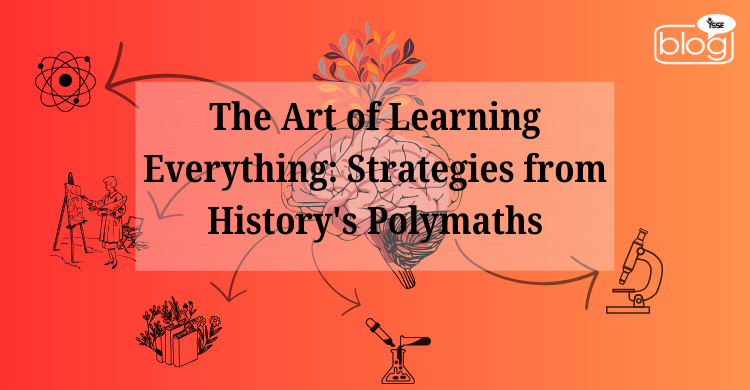A polymath also known as a “Renaissance man” is a person with expertise in a wide range of subjects. In history, lots of polymaths are well-known like Leonardo Da Vinci, Sir Isaac Newton, Aristotle, Pythagoras, Benjamin Franklin, etc. Leonardo Da Vinci was the most famous as a Polymath. He was a painter, draftsman, engineer, scientist, theorist, sculptor, and architect. Is it really possible for a person to be all that?
Aside from the fact he was a god-gifted genius, what Strategies did he use and how can we imply those in our lives? From Leonardo da Vinci to Benjamin Franklin, all polymaths were great thinkers. They were all curious individuals, always looking for answers. Vinci’s notebook was filled with questions from water flow to bird anatomy. Polymaths relentlessly question everything.
Polymaths don’t confine themselves to one area of interest. They are into a wide range of subjects. Maybe interdisciplinary or maybe totally unrelated to another. We can also apply this to our lives. In addition to learning our area of study, we can dive into related studies. For example, if someone is into physics by default he would have to learn a bit of math and chemistry. So in his case, he can learn math and chemistry more in depth. Given his physics foundation, he can also engage in engineering and computer science. Learning interdisciplinary studies can be interesting and relevant to one. And it’s that wiser option. Engagement in interdisciplinary subjects can help with one’s primary interest.
Polymaths apply their knowledge practically, which deepens their understanding. Polymaths are life-long learners. We should also be committed to continuous learning.
In this modern era, there are several resources that we can learn from. Many platforms like Coursera, Edx, YouTube, Khan Academy, and Udemy offer courses in various subjects. Those courses can easily be accessible on the Internet. This makes it easier than ever to adopt a polymathic approach. Libraries remain invaluable resources. Reading books about interesting topics can deepen our knowledge about the matter.
We have to embrace the mindset of the polymaths. One of the difficulties of polymaths is balancing specialization while continuing with generalization. What I mean by that is polymathic learning is learning a wide range of subjects but we still have to learn the deep foundational knowledge of our desired subjects. It would be unwise to hop from one area to another without learning its essence.
Time management is a crucial skill for literally everyone. Polymaths are no different. Learning a broad range of subjects parallelly is very hard. You would have to balance your time with each subject. Prioritizing tasks and creating a structured schedule can help manage multiple learning pursuits without becoming overwhelmed.
Failure is the pillar of success. In this journey of polymathic learning, it is obvious to face hardships and failures. All the successful polymaths before us have faced the same. So we have to be persistent and foster resilient. Curiosity is the key to this all. By adopting a polymathic approach, we can go beyond our horizons.
To read more blogs like this click here.
Writer,
Md. Mashrafi Alam Nafi
Intern of Content Writing Department
YSSE

